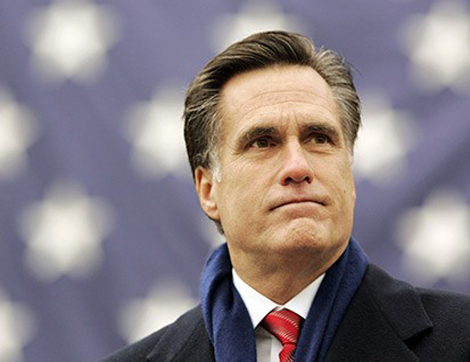
By Mark Anderson
When the Supreme Court removed the last barriers to corporate funding for political campaigns in the infamous Citizens United vs. Federal Election Commission case in early 2011, the floodgates were opened for corruption in an electoral system already marred by electronic vote scamming and huge ballot access hurdles for candidates in third parties.
Now, a case involving Republican presidential candidate Mitt Romney is sparking investigations, because a shell company was formed by one of Romney’s cronies just long enough to pump $1 million into his 2012 White House campaign before the company was closed down.
The Hill offered some specifics on August 8, noting that “Romney wouldn’t condemn Edward Conrad, a former executive at Bain Capital, the company Romney co-founded, for setting up a company to contribute the bulk sum to the Restore Our Future PAC.”
Conrad had suddenly confessed that he was the phantom donor who cobbled together W Spann LLC, “a corporation that was founded this year and dissolved shortly after contributing to Restore Our Future, a super-PAC that can receive and spend unlimited amounts of money that was founded by veterans of Romney’s 2008 presidential campaign.”
The Campaign Legal Center and Democracy 21 have filed a complaint with the Federal Election Commission (FEC) and the Justice Department (DoJ) against W Spann. Online news website TPM reports: “the two groups are also asking the FEC and DoJ to formally investigate the activities of the F8 LLC and Eli Publishing L.C. [two more phantom companies] for possible violations of the ban on making contributions in the name of another and for failing to organize and register as a political committee. The groups also want the agencies to look into whether Restore Our Future had any knowledge or involvement in the ‘straw company’ donation scheme.”
“Why should a corporation be able to do it and not have it be considered illegal?” Carl Person, a New York attorney and a 2012 presidential candidate for the Libertarian Party, told this reporter.
If Conrad had contributed $1 million as an individual person, “he would have had to report it as an individual to the [Romney] campaign,” said Person, which then would have to “report it to the FEC.” That would be illegal.
Since the last limitations under the 1998 McCain-Feingold campaign finance law were swept away in Citizens United v. FEC, he added, it now could be open season for such hocus-pocus to take place so individuals can channel wads of cash to help corporate-friendly candidates, while posing as a corporate donor. As of now, attorney Person said, “[corporations] cannot give money directly to a candidate, but they can spend the money themselves to benefit that candidate [through advertisements etc].”
Romney, who changes positions on many issues like some people change their socks, is clearly of the genus corporation man. He was immersed in the world of business with Bain, while sitting on the boards of directors of other firms, until about 10 years ago before taking a political trajectory—much like that of his father, former Michigan Governor George Romney, who was an auto executive before going political with an internationalist, pro big business bent.
Mark Anderson is roving editor for AMERICAN FREE PRESS.

